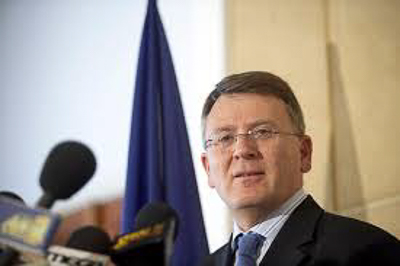
At a conference of the European Foundation for Progressive Studies in Rome today, held to mark the 60th anniversary of the Treaty of Rome, Luxembourg’s labour minister, Nicolas Schmit, addressed the audience including the president of the EU Policy Committee of the Chamber of Deputies, and vice-president of the European Parliament, and called for a new progressive European incarnation, one that is more social, more in solidarity with its people, more democratic and which no longer fallsl for the false promises of austerity.
“The European Union is the construction of a trans-national democracy, albeit still imperfect but unique in the world,” said Minister Schmit, before asking, “but can this ultimately a rich record satisfy us as representatives of the progressive forces?”
“Certainly not when we look at the state of the European Union, where for almost a decade unemployment has risen sharply, inequalities have truly exploded and where the increasing distrust of the citizens is translated electorally by a rise of nationalist and Euro-phobic populism,” was his answer.
The minister traced the rise of nationalism to blind faith in the power of markets, and the unbridled globalisation that has driven vast quantities of wealth into the hands of a few while the number of losers continues to grow.
“These are the main reasons that today cause a majority of citizens to doubt the benefits of Europe which has disappointed their expectations. It is not an outright rejection of the European idea that remains firmly anchored, but these fears, these privations, the feeling that this Europe very impregnated by the neo-liberal ideology pays little attention to these unemployed young people and families plunged into insecurity and exclusion.
“In short, our societies are fracturing and the prospects for millions of fellow citizens are darkening,” said the minister.
The minister condemned the senseless promise that austerity could generate growth and prosperity for all as a serious mistake.
Minister Schmit called for concrete alternative solutions that reconnect with Europe’s values and dismissed talk of a “multi-speed”, split-level Europe. He pointed out that the question of whether we should have more or less Europe is a false one, when it misses the real questions that concern Europe’s citizens.
“Who wants more Europe when it means more liberalisation, less public services, labor market flexibility leading to more precariousness, budgetary policies that restrict investment and increase inequality?” asked the minister.
For him, the question is not how much but what kind of Europe do we want. The ultra-liberal one with its blind confidence in the markets, or one which provides more economic, social and political security in order to deliver on the promise of prosperity for all and demolish the power of the populists and their desires that would plunge us back into our disastrous history while providing no answers to today’s problems.
“Europeans aspire to peace, stability and cooperation. Europe is their only insurance, provided it can afford it,” said Minister Schmit, suggesting that current policy is not up to the task without a flexible, integrated defence network, without becoming a fortress.
On economic security, the minister highlighted that globalisation is irreversible and has benefited hundreds of millions of men and women who have emerged from destitution. But it has also brought down the lives and expectations of millions.
“Markets do not compensate for these losses and ignore these human tragedies,” said the minister, adding, “The debate on free trade is distorted by an ideological stance that is not confirmed by the facts. This mobilisation of large sections of civil society against new-types of free trade agreements must be taken seriously and European policy must be readjusted in a more democratic sense.”
As an example, Minister Schmit referred to the case of Greece.
“This country is undoubtedly the tragic example of a conservative dogmatic policy that ignores economic and social realities,” he said.
Calling for reform, Minister Schmit, said we need to correct the initial weaknesses of the European Monetary Union, through a revival of investment in new technology, beyond the Juncker programme, re-orientation of economic activity in the direction of recarbonisation, consolidation in the context of a fiscal stance for the euro area which should no longer be the juxtaposition of national economies and budgets, creation of a genuine budgetary capacity for the euro area, coordination of taxation which excludes all practices of fiscal dumping.
Minister Schmit raised the Report of Maria Joa Rodrigues to the European Parliament on the Social Rights Platform, which makes proposals to integrate social issues into the legal framework, adding “A few days ago, under the presidency of the French Prime Minister, twelve ministers belonging to the progressive family, adopted a declaration reaffirming these principles and outlining an ambitious social Europe that reconnects with the aspirations of the vast majority of our fellow citizens who are asking questions about their future and the future of their children…
“…A revival of Europe must be based on clear choices. It must mobilise our civil societies, trade unions, workers, intellectuals and artists. Europe is at first a civilisation based on values and a culture that is distinguished by its great diversity. It is also a social model that respects the individual and offers everyone protection through a solidarity approach. Europe is also at the forefront of the fight against climate change, a great threat to the natural equilibrium of our planet ... Today we must defend the achievements achieved over the last 60 years. But we must also change course and open up new perspectives. For our political family, it is a natural task. It is up to us to do it.”








